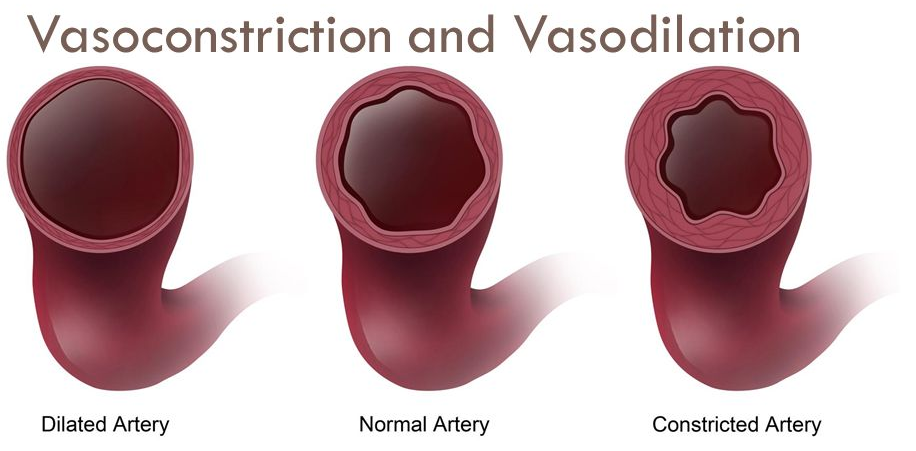Blood Vessel
Jump to navigation
Jump to search
A Blood Vessel is a tubular structure of a circulatory system that transports blood throughout an organism.
- Context:
- It can range from being a Human Blood Vessel, ...
- It can range from being an Artery to being a Vein.
- It can range from being a Constricted Blood Vessels, Normally-Sized Blood Vessels and Dilated Blood Vessels (through a Vasoconstriction mechanism).
- …
- Example(s):
- an Artery Blood Vessel.
- a Vein Blood Vessel.
- a Capillary, ...
- See: Vein, Circulatory System, Blood, Human Body, Artery, Heart, Tissue (Biology).
References
2022
- https://psychonautwiki.org/wiki/Vasoconstriction
- QUOTE: Vasoconstriction can be described as a narrowing of the veins and blood vessels which results from a contraction of their muscular wall. It is particularly prevalent in the large arteries and small arterioles.
This effect typically results in feelings of tightness, achiness, and numbness within a person's arms and legs. It can range from mild in its effects to extremely uncomfortable.
Vasoconstriction is often accompanied by other coinciding effects such as stimulation. It is most commonly induced under the influence of moderate dosages of stimulating psychedelic compounds, such as LSD, 2C-E, and DOC. However, it can also occur under the influence of traditional stimulants such as methamphetamine, caffeine, and MDMA.

- QUOTE: Vasoconstriction can be described as a narrowing of the veins and blood vessels which results from a contraction of their muscular wall. It is particularly prevalent in the large arteries and small arterioles.
2016
- (Wikipedia, 2016) ⇒ https://en.wikipedia.org/wiki/blood_vessel Retrieved:2016-5-19.
- The blood vessels are the part of the circulatory system that transports blood throughout the human body. There are three major types of blood vessels: the arteries, which carry the blood away from the heart; the capillaries, which enable the actual exchange of water and chemicals between the blood and the tissues; and the veins, which carry blood from the capillaries back toward the heart. The word vascular, meaning relating to the blood vessels, is derived from the Latin vas, meaning vessel.